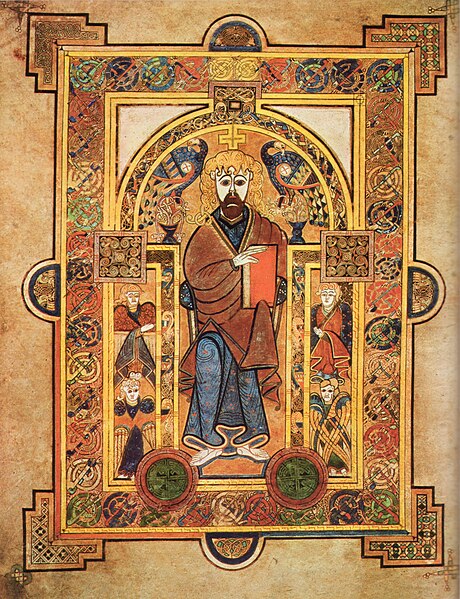
Written circa 800 AD, the Book of Kells is a remarkable example of the illuminated manuscripts produced by monasteries in medieval Ireland.
Trinity College Dublin hosts this website, which makes online viewing of the famous book possible.
Discover@MU is a simple and fast search engine that helps you discover relevant information on any topic from the MU Libraries' collections. It is the place to start your research in scholarly journals, books, videos, maps, manuscript collections, music scores, and more.
Use this tool to find key phrases such as names, dates, or event names in books written during a certain period and/or with a certain word in the book title, and/or by a certain author. Use the Find In a Library feature to find books without purchasing them. Books protected by copyright may not be viewable in their entirety.
The Irish tri-color flag is meant to signify unity and peace. The green represents the southern, main part of Ireland, the orange represents the north, and the white symbolizes the ideal of peace between the two regions.
"Amhrán na bhFiann", or "The Soldier's Song", was composed in 1907 by Patrick Heeney and Peadar Kearney, with lyrics by Peadar Kearney. It was popular during the Easter Rising of 1916 and the Irish War for Independence, and was adopted as the national Anthem in 1926.
(click to play)
While the official flag of Northern Ireland (U.K.) is the British Union Flag ("Union Jack"), there are two other flags used to represent Northern Ireland. The St. Patrick's Saltire, representing the third element of the Union Flag, is used for uniquely Northern Irish official functions and on government buildings. The older Ulster Banner, used from 1953-1973, is still used to represent Northern Ireland at international sporting events.
St. Patrick's Saltire
Ulster Banner